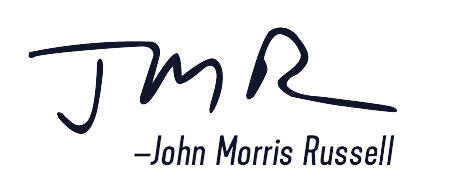AMERICAN ORIGINALS: 1918
From JMR
“The war to end all wars” ended on November 11, 1918, but in many ways, that date also marks the beginning of America’s cultural awakening. Within the decade following World War I, burgeoning jazz, country, and blues styles began to blossom across the nation: styles that would bear fruit in American popular music for the remainder of the century and define our shared musical ethos. One of the few positive things to come out of this horrific war was the US Army’s embrace of African-Americans, which despite shameful treatment, ultimately created new opportunities for all black Americans, especially musicians. Of the 370,000 African-American troops that served during the war, about 40,000 served in combat divisions, many of which established their own regimental bands.
Unlike traditional Army bands, the legendary New York 369th Infantry “Hellfighters” Regimental Band led by Lt. James Reese Europe, entertained troops and civilians by performing original works in a ragtime style, including “Hey There!” with its infectious syncopation and high-energy flair. “All of France contracted ‘ragtimitus’ thanks to Jim Europe,” quipped fellow bandmate and singer Noble Sissle, who later wrote the smash hit “I’m Just Wild About Harry” along with Eubie Blake in their groundbreaking 1921 musical Shuffle Along. The 350th Field Artillery Regiment “Black Devils” Orchestra was another celebrated band, led by Timothy Brymn. His “Cocoanut Grove Jazz” shifts musical gears between swing, ragtime and boogie-woogie, like a Rosetta Stone of jazz style. It is no wonder that composers like Stravinsky, Ravel, Poulenc and Milhaud were inspired to create jazz compositions of their own after hearing these bands in Paris.
Black regimental bands returned home in 1919, and went on to take American audiences by storm. “We won France by playing music which was ours and not a pale imitation of others, and if we are to develop in America we must develop along our own lines,” said Europe, whose landmark 1919 recordings on Pathé Records include W.C. Handy’s “Memphis Blues”, and “Strutter’s Ball” by Shelton Brooks, which are among the very first wildly popular jazz standards.
The “Empress of Blues” Bessie Smith, another early recording star, helped make a hit of “I Ain’t Got Nobody” by Spencer Williams and Roger Graham in 1925, but is best known for the fearless strength she expressed in compositions like “I Ain’t Gonna Play No Second Fiddle”, sung here powerfully by Rhiannon Giddens. Bessie Smith was frequently accompanied by ragtime piano virtuoso James P. Johnson, an often overlooked genius of the era. Johnson teamed up with lyricist Cecil Mack, an alumnus of both Brymn’s and Europe’s bands, to compose the most famous song of the jazz age, Charleston, presented here as a showpiece for orchestra and tap dancer Robyn Watson.
We cannot forget the contributions to the early jazz scene by Will Marion Cook, who gave Duke Ellington his first composition lessons, and wrote the first, full-length, all African-American production on Broadway, In Dahomey. “Swing Along” was not only the show’s big hit, but served as an anthem in the Black community for two generations, including the famed ‘Tuskegee Airmen’ in the Second World War. Irving Berlin’s beloved patriotic classic God Bless America, George M. Cohan’s iconic march “Over There,” and Walter Donaldson’s “How Ya Gonna Keep ‘em Down on the Farm” also inspired soldiers in both World Wars, and on this recording they were given richly inventive settings by arranger Rob Mounsey. Brilliant American composer Peter Boyer created a new work, “In the Cause of the Free”, featuring Pops Principal Trumpet Robert Sullivan, to honor those thousands of young soldiers whose ultimate sacrifice over one hundred years ago helped create a more peaceful world we all enjoy today.
Like jazz, country music has its roots in the
years between the wars and owes much of its
early pedigree to folk music and blues, typified
in the artistry of Jimmie Rodgers, whose “Prairie
Lullaby” is sung with swagger on this recording
by Pokey LaFarge. Pokey also sings “Night Owl”
by Herman Hupfeld, best known for “As Time Goes
By” from the film Casablanca. The sensational
Steep Canyon Rangers give us a splendid rendition
of Irving Berlin’s “Remember” and provide
the blazing ‘encore’ of “Auden’s Train”, written
by band member Nicky Sanders and frequent
collaborator and banjo aficionado Steve Martin,
with help from poet W.H. Auden.
It is always a joy to work with the remarkable
musicians of the Cincinnati Pops Orchestra
and the exceptional artists who helped shape
this project from beginning to end. We are all
deeply touched and awed by the composers
and performers of a century ago whose work we
celebrate in this recording; their struggles and
brilliance inspired us in equal measure.